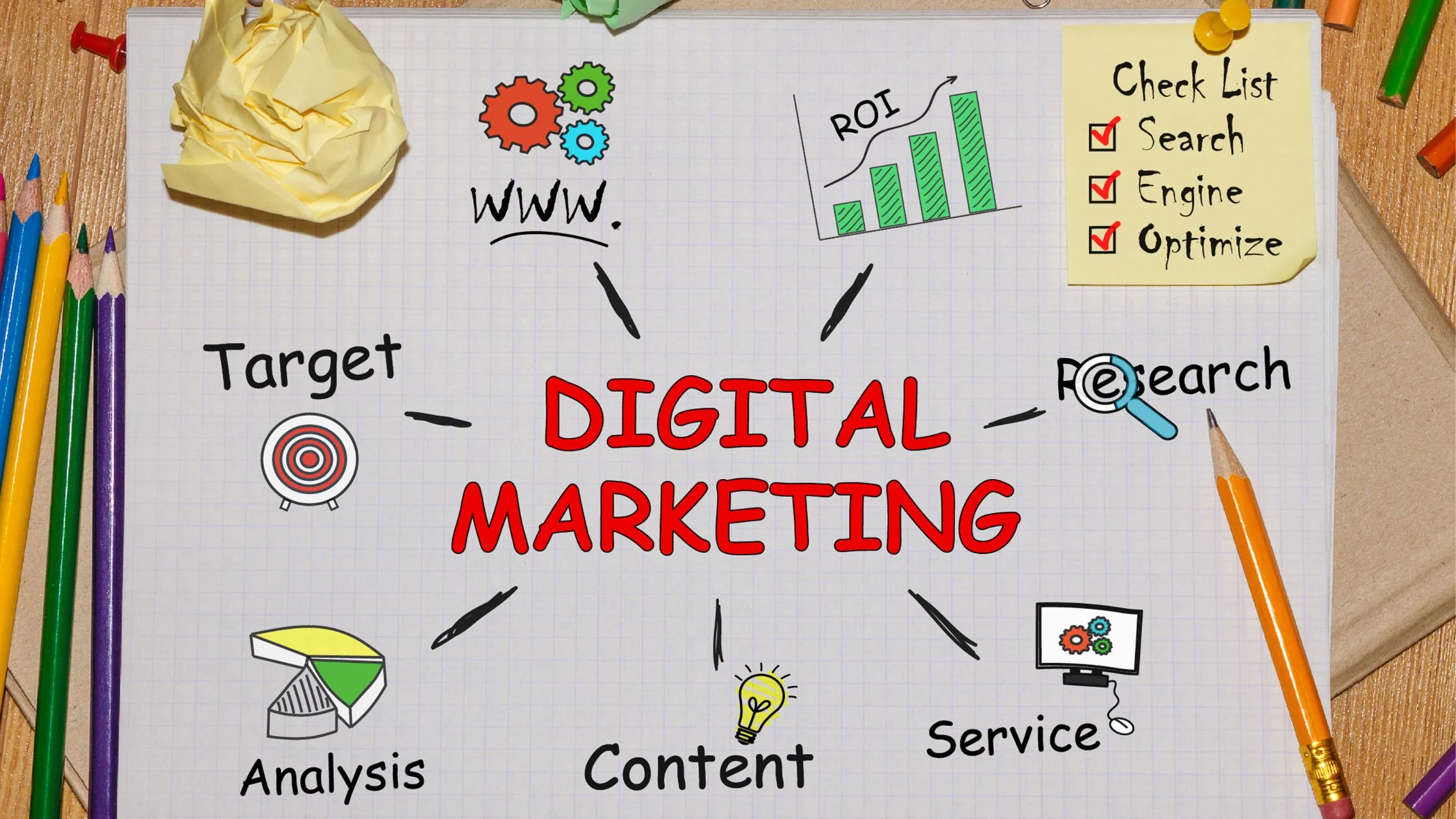In today’s fast changing job market, the ability to adapt and learn new skills isn’t just an advantage, it’s a necessity.
Did you know that the average person changes careers 5-7 times in their lifetime?
With the rise of digital tech and remote work, the opportunities to earn more by learning high-income skills have never been greater.
So if you’re looking to pivot careers, start a profitable side hustle, or increase your value in your current role, mastering in-demand skills can greatly boost your earning potential.
The best part? You can learn all of these skills online, often at your own pace and for a fraction of the cost of traditional education.
In today’s post, we’ll explore:
- 10 lucrative skills you can start learning today
- How long it typically takes to master each skill
- The best resources to learn from
- Potential earnings for each skill
- How to choose the right skill for you
What Makes a Skill “High-Income”?
Before diving in, let’s define what makes a skill highly profitable:
- Growing market demand
- Limited supply of qualified pros
- Scalability and remote work potential
- Tangible value to businesses
Top 10 High-Income Skills for 2024

1. Data Analysis
Average Income: $70,000 – $120,000/year Learning Time: 3-6 months
In our data-driven world, the ability to analyze and interpret data is invaluable.
Data analysts help businesses make informed decisions by turning raw data into actionable insights.
What You’ll Learn:
- SQL for database management
- Python or R for data manipulation
- Data visualization tools (Tableau, Power BI)
- Statistical analysis
- Machine learning basics
Best Online Resources:
- Google Data Analytics Professional Certificate (Coursera)
- DataCamp
- Khan Academy (for statistics foundations)
2. Digital Marketing

Average Income: $60,000 – $100,000/year Learning Time: 2-4 months
Digital marketing remains one of the most in-demand skills as businesses increasingly focus on online presence and growth.
Key Areas to Master:
- Search Engine Optimization (SEO)
- Pay-Per-Click Advertising (PPC)
- Social Media Marketing
- Email Marketing
- Content Marketing
Best Learning Paths:
- HubSpot Academy (free certifications)
- Google Digital Garage
- Meta Blueprint
3. UX/UI Design

Average Income: $65,000 – $110,000/year Learning Time: 4-8 months
As digital products become increasingly important, the demand for designers who can create intuitive, user-friendly interfaces continues to grow.
Essential Skills:
- User research and testing
- Wireframing and prototyping
- Design principles and typography
- Industry tools (Figma, Adobe XD)
- Basic HTML/CSS understanding
Learning Resources:
- Google UX Design Professional Certificate
- Udacity UX Designer Nanodegree
- DesignLab’s UX Academy
4. Copywriting

Average Income: $60,000 – $100,000/year Learning Time: 2-3 months
Good copywriters are always in demand as businesses need compelling content to attract and convert customers.
Key Skills:
- Persuasive writing
- SEO copywriting
- A/B testing
- Understanding customer psychology
- Sales funnel optimization
Top Learning Platforms:
- CopyHackers Copywriting Course
- AWAI’s Accelerated Program
- Copyblogger’s Content Marketing Certification
5. Web Development

Average Income: $70,000 – $130,000/year Learning Time: 4-12 months
Web development remains a high-income skill with constant demand as businesses need online presence and web applications.
Core Skills:
- HTML, CSS, JavaScript
- Front-end frameworks (React, Vue)
- Back-end development (Node.js, Python)
- Database management
- Version control (Git)
Learning Resources:
- freeCodeCamp
- The Odin Project
- Codecademy Pro
6. AI/ML Engineering
Average Income: $100,000 – $150,000/year Learning Time: 6-12 months
With AI transforming industries, professionals who can develop and implement AI solutions are highly sought after.
Discover unique products that inspire at the
InspiredLife ShopWear Your Motivation. Inspire Your Space.
Required Knowledge:
- Advanced Python programming
- Deep learning frameworks (TensorFlow, PyTorch)
- Mathematics and statistics
- Natural Language Processing
- Computer vision
Best Courses:
- Deep Learning Specialization (Coursera)
- Fast.ai Practical Deep Learning
- MIT OpenCourseWare AI courses
7. Cloud Computing
Average Income: $80,000 – $140,000/year Learning Time: 3-6 months
As businesses move to the cloud, experts in cloud platforms and architecture are in high demand.
Key Areas:
- AWS, Azure, or Google Cloud
- Cloud security
- Serverless architecture
- DevOps practices
- Container orchestration (Kubernetes)
Certification Paths:
- AWS Certified Solutions Architect
- Microsoft Azure Administrator
- Google Cloud Professional Cloud Architect
8. Video Production and Editing

Average Income: $55,000 – $100,000/year Learning Time: 3-6 months
With the rise of video content, skilled video producers and editors are essential for businesses and content creators.
Skills to Master:
- Video editing software (Adobe Premiere Pro, Final Cut Pro)
- Motion graphics
- Sound editing
- Storytelling through video
- Color grading
Learning Platforms:
- LinkedIn Learning
- School of Motion
- YouTube tutorials (Peter McKinnon, Philip Bloom)
9. Project Management
Average Income: $75,000 – $120,000/year Learning Time: 2-4 months
Effective project managers who can lead teams and deliver results are valuable in any industry.
Essential Skills:
- Agile and Scrum methodologies
- Project management software (Jira, Asana)
- Risk management
- Budgeting and resource allocation
- Stakeholder communication
Certification Options:
- Project Management Professional (PMP)
- Google Project Management Certificate
- Scrum Master Certification
10. Blockchain Development
Average Income: $90,000 – $150,000/year Learning Time: 6-12 months
As blockchain technology matures, developers who can create decentralized applications and smart contracts are increasingly valuable.
Required Skills:
- Solidity programming
- Web3 development
- Smart contract creation and auditing
- Cryptography basics
- DApp development
Learning Resources:
- Ethereum Developer Program
- Alchemy University
- Dapp University
Comparison Table
| Skill | Entry Barrier | Time to First $ | Remote Work | Market Demand |
| Data Analysis | Medium | 3-4 months | High | Very High |
| Digital Marketing | Low | 1-2 months | High | High |
| UX/UI Design | Medium | 3-4 months | High | High |
| Copywriting | Low | 1-2 months | Very High | High |
| Web Development | Medium-High | 4-6 months | Very High | Very High |
| AI/ML Engineering | High | 6-8 months | High | Very High |
| Cloud Computing | Medium-High | 3-4 months | High | Very High |
| Video Production | Medium | 2-3 months | Medium | High |
| Project Management | Medium | 2-3 months | Medium-High | High |
| Blockchain Development | High | 6-8 months | Very High | Medium-High |
How to Choose the Right Skill for You
Assess Your Starting Point
- Current Skill Set: What complementary skills do you already have?
- Learning Style: Do you prefer visual, practical, or theoretical learning?
- Time Availability: How many hours weekly can you dedicate to learning?
Consider Market Factors
- Industry Demand: Research job postings and freelance platforms
- Future Prospects: Look for skills with growing, not declining, demand
- Location Factors: Are there local opportunities, or will you work remotely?
Common Pitfalls to Avoid
- Trying to learn multiple skills simultaneously
- Choosing a skill solely based on income potential
- Neglecting to build a portfolio as you learn
- Not networking with others in your chosen field
Getting Started Guide
Week 1-2: Foundation
- Choose the skill you’re interested in learning
- Gather learning resources
- Create a structured plan for leveling up
Week 3-4: Immersion
- Complete online courses
- Start small projects
- Join relevant online communities
Month 2: Practice
- Work on portfolio projects
- Seek mentorship
- Start networking in your chosen field
FAQs
Q: How long does it take to start earning with a new skill?
A: While it varies by skill and individual, most people can start earning within 3-6 months of dedicated learning.
Some skills, like copywriting or basic digital marketing, may allow you to start earning sooner through entry-level gigs.
Others, like AI/ML engineering, typically require more time before you can monetize your knowledge.
Q: Do I need a degree to work in these fields?
A: No, most of these skills value practical expertise over formal education. A strong portfolio and proven abilities often matter more than degrees.
Employers and clients typically focus on your actual capabilities, completed projects, and problem-solving abilities rather than academic credentials.
Q: Can I learn these skills while working a full-time job?
Discover unique products that inspire at the
InspiredLife ShopWear Your Motivation. Inspire Your Space.
A: Yes, absolutely! Many successful professionals learned their high-income skills while working full-time. The key is consistent, dedicated practice – even if it’s just 1-2 hours per day.
Create a realistic schedule, focus on practical projects, and consider batch-learning on weekends.
Many online courses are designed for self-paced learning to accommodate working professionals.
Q: Which skill has the lowest barrier to entry?
A: Among the listed skills, copywriting and digital marketing typically have the lowest barriers to entry.
They require minimal technical knowledge to start, have plenty of free or low-cost learning resources, and allow you to begin practicing with basic tools.
However, mastering these skills still requires dedication and consistent practice.
Q: How much money do I need to invest to learn these skills?
A: The investment varies by skill, but many can be learned for free or with minimal investment. Platforms like freeCodeCamp, Google Digital Garage, and YouTube offer high-quality free content.
Paid courses typically range from $10-$500, with comprehensive bootcamps costing more.
Essential software often offers free tiers or student discounts. The main investment will be your time and dedication.
Q: Are these skills future-proof? Will they still be valuable in 5-10 years?
A: While the specific tools may change, the fundamental principles behind these skills will remain valuable.
For example, programming languages may evolve, but the logic and problem-solving skills of web development endure.
The key is to focus on adaptable, foundational knowledge while staying current with industry trends. Regular upskilling will ensure your abilities remain relevant.
Q: Can I learn multiple skills simultaneously?
A: While it’s possible, we recommend focusing on one primary skill at a time, especially when starting.
Many of these skills complement each other naturally, for instance, web development often incorporates aspects of UI/UX design.
Once you’ve established a solid foundation in one skill, it becomes easier to branch out and learn complementary skills.
Q: What if I start learning and realize the skill isn’t for me?
A: It’s normal and okay to change direction! Many successful professionals tried several paths before finding their fit.
The learning process itself develops valuable meta-skills like problem-solving and self-discipline.
Additionally, many of these skills have overlapping elements, so your efforts won’t be wasted. We recommend giving each skill a fair chance (at least 3-4 weeks) before deciding to pivot.
Q: How do I know if I have an aptitude for a particular skill?
A: The best way to discover your aptitude is through hands-on experience. Many skills seem daunting until you start practicing.
Begin with basic tutorials and projects in areas that interest you.
Pay attention to:
- How engaged you feel during learning
- Whether you naturally seek out more information
- If you lose track of time while practicing
- How you handle the inevitable challenges
Remember, aptitude often develops through practice. What feels difficult at first can become second nature with time.
Q: What’s the best way to create a portfolio when I’m just starting?
A: Start building your portfolio from day one:
- Document your learning journey
- Create personal projects
- Contribute to open-source projects
- Offer pro-bono work to non-profits
- Recreate real-world examples Even if they’re simple, early projects demonstrate your progression and commitment. As you improve, regularly update your portfolio with more advanced work.
Final thoughts
Learning a high-income skill is one of the best investments you can make in yourself.
While the journey requires dedication and consistency, the potential rewards, both financial and personal are significant.
Remember, the key to success is not just learning the skill but also applying it effectively and continuously updating your knowledge.
If you found this guide helpful, you might also be interested in my article on How to Master Any New Skill: The 5-Step Framework and Why Most People Fail at Learning New Skills (And How to Succeed).
These resources will help you accelerate your learning journey and overcome common obstacles.

Helping people and eating tacos are my jam! This blog exists to help provide tips and resources that can help you achieve your goals and live a better life. Whether you’re looking for tips on personal growth, fitness, advice on starting a side hustle, or resources for working remotely, I’ve got you covered.
